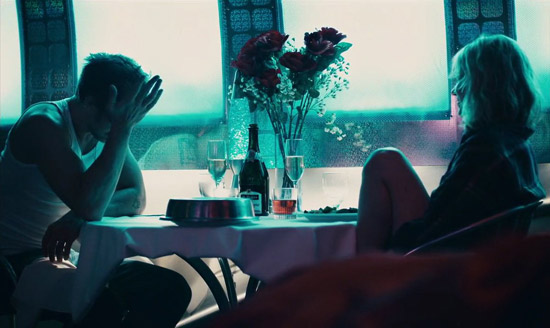
Romantic love is complicated, yet it is very commonly portrayed in film as a well understood phenomenon with clearly defined boundaries. Films tend to adopt idealized notions of romantic love in which specific criteria are met, thereby qualifying romantic love as such. For example, romantic love is often viewed as unconditional.
This means that one loves a person for who they are, through thick and thin, regardless of changes in personality, appearance, etc. Love is also viewed as involving knowledge and certainty. When a person is in love they know it and never doubt its validity. Love is thought of as static. That is, when people are in love, it lasts forever. Finally, romantic love is considered to be inherently valuable.
In reality, what constitutes romantic love is less clear. Love is not static, but dynamic. Our love for an individual can change in a relatively short period of time. We can adore someone at one time, and despise them the next. We can even fall out of love. People are not always aware that they are in love, and a loving romantic relationship can be full of doubt.
Further, romantic love cannot be assumed to be inherently valuable, as it is often a source of great suffering. In short, people can have very different experiences of romantic love, often contradicting the idealized notions. These films confront idealized notions of romantic love by exploring loves dynamic nature.
15. Laurence Anyways (Xavier Dolan, 2012)

Written, directed, and edited by one of cinemas youngest auteurs, Xavier Dolan’s film Laurence Anyways portrays romantic love as conditional. When we love someone, we are in love with who they are. This includes their personality, their talents, and their physical traits. If the person we love changes too much, we may not love who they become the same as we loved who they used to be.
Laurence Elia (Melvil Poupaud) is a novelist and literature teacher living in Montreal. He is deeply in love with his girlfriend Fred (Suzanne Clement). One day Laurence reveals to Fred that he is in fact a woman living in a man’s body, and that he wishes to undergo a sex change in order to become the woman he was meant to be.
Although Laurence is set on physically transforming his body to that of a female, he still loves Fred, and hopes to maintain their romantic relationship. Fred is devastated by the news. She is hurt that Laurence rejects the physical aspects of himself which she adores. Fred decides that she should be there for Laurence, but coping with the dramatic change is more difficult then she anticipated.
Laurence Anyways challenges idealized notions of love as unconditional. When we love someone, we are in love with a collection of defining traits and qualities. We love a person on the condition that they retain the traits and qualities that played a part in winning our affection.
Fred loves Laurence for his sense of humor, his lyrical intelligence, and the male physique in which he is embodied. When Laurence transforms his male physique to that of a female, he destroys an aspect of his self that Fred adored.
14. Love (Gaspar Noe, 2015)

Marking the end of a five year hiatus which began after his release of Enter the Void, Gaspar Noe’s 3D romantic drama depicts love as dynamic, consuming, and ultimately volatile. Love utilizes unsimulated sex scenes, and unscripted dialogue to capture the fluid emotional transitions between the highs and lows of romantic relationships.
Murphy (Karl Glusman) is an American college student studying film abroad in Paris. He soon meets Electra (Aomi Muyock) and the two immediately fall for one another.
Murphy and Electra are quickly consumed by their love for each other, constantly seeking ways to maximize their pleasure and reach new highs in their relationship. Their romance begins to deteriorate when they are confronted by the consequences of their frenzied approach to love.
Gaspar Noe challenges the notion of love as inherently valuable. Murphy and Electra abuse their love, like drug addicts constantly chasing the most powerful high.
Though their relationship is filled with tender moments and blissful pleasures, it is ultimately self-destructive for both of them. Sometimes no matter how much we are drawn to someone, no matter how appealing the promise of a better life their presence seems to offer, they can only do us harm.
13. Possession (Andrezj Zulawski, 1981)
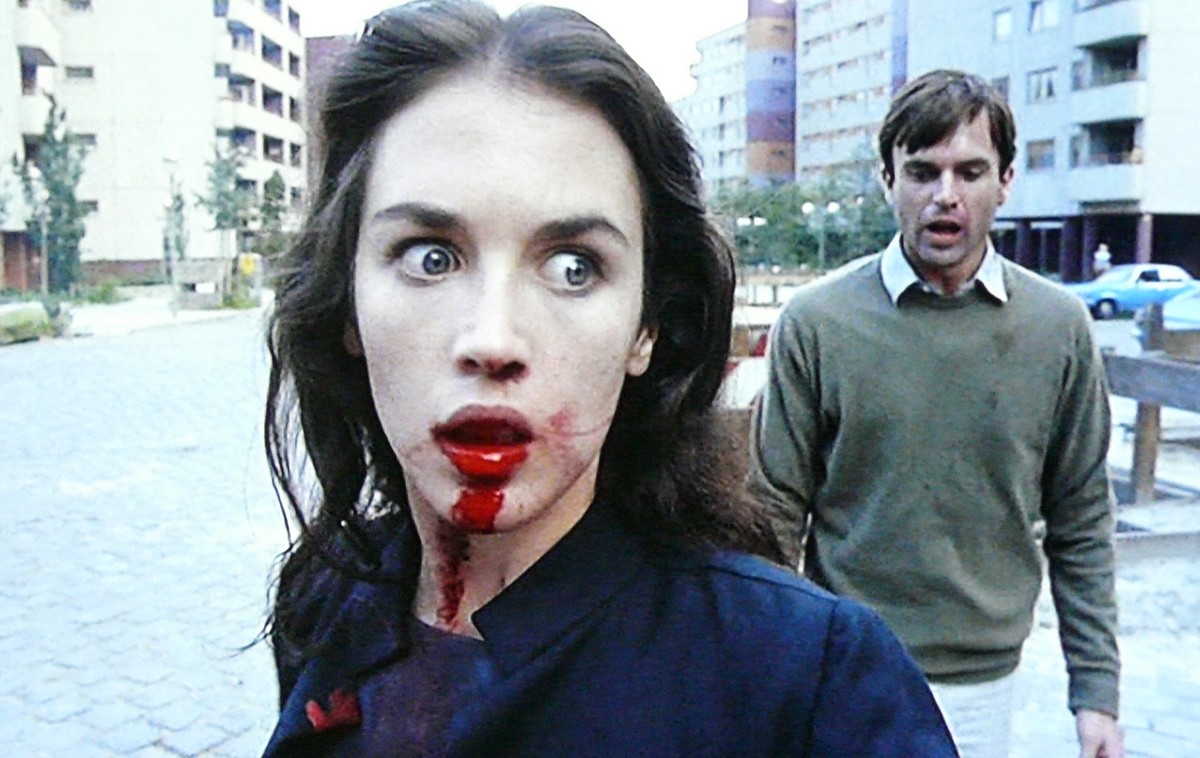
Possibly one of the most convoluted films of all time, Polish maverick Andrzej Zulawski’s Possession is a wild emotional roller coaster.
The film depicts the sheer anguish of two people totally consumed by their volatile relationship. Using frantic camera work, claustrophobic close-ups, and a unique acting style in which his actors/actresses are constantly thrown in paroxysms of rage, Zulawski portrays love as an agonizing struggle between the opposing forces of attraction and repulsion.
Mark (Sam Neil) returns home after traveling abroad on a secret mission involving espionage, only to find that is wife Anna (Isabelle Adjani) wants a divorce. He begs her to reconsider, but Anna’s mind is made up, though her decision appears to be difficult for her.
Mark becomes increasingly unstable. He is enraged and disgusted by her betrayal, erratic behavior, and lack of compassion, but he is desperately dependent on her love. Meanwhile Anna spends her time visiting a dingy apartment, making love to and nurturing a mysterious entity.
Zulawski displays people’s inability to reconcile their idealized perceptions of each other with reality. Both Mark and Anna are torn between their interdependence, and their desire for the other to embody an ideal character. Possession reveals that we can hate the ones we love.
12. Twenytnine Palms (Bruno Dumont, 2003)
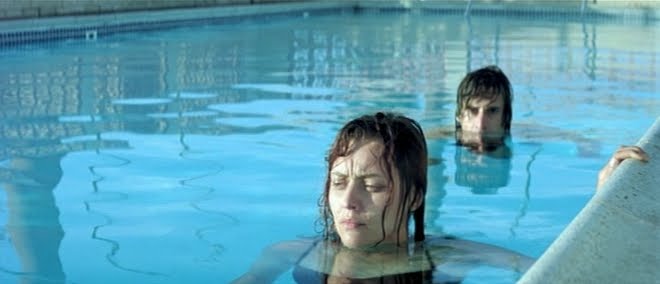
Written and directed by controversial filmmaker Bruno Dumont, Twentynine Palms explores the primal impulses that drive human interaction and shape romantic love. Dumont portrays human intimacy as reflecting the same brutish biological function of wild animals.
American photographer David (David Wissak) and his Russian girlfriend Katia (Yekaterina Golubeva) embark on a road trip across the California desert landscape in order scout for a shooting location. David does not speak Russian and Katia does not speak English. The two communicate speaking French, a language which neither speaks fluently.
David and Katia constantly miscommunicate, which leads to arguments. When they are not fighting, the two engage in wildly crude acts of sex, usually reconciling their frustrations. After a disturbing event interrupts their routine, David takes extreme action to rectify his anguish.
Twentynine Palms suggests that romantic love is no different than the evolutionary and biologically motivated coupling of wild animals. The same mechanisms that drive animals to mate and form families are the same as those that beckon humans to form romantic partnerships. Thus love is not some beautiful human phenomenon, but a primitive expression of animal drives.
11. Trouble Every Day (Claire Denise, 2001)
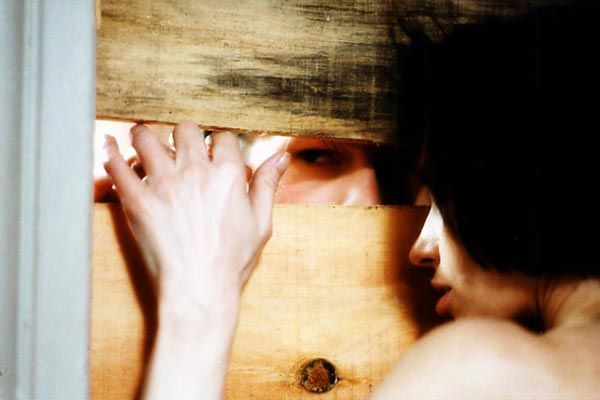
Written and Directed by French Filmmaker Claire Denise, Trouble Every Day is both extremely sensual and ultra-violent. Offering a unique take on the “vampire film,” Denise portrays the expression of love as analogous to the expression of hate, both stemming from the drive to dominate and consume.
Dr. Shane Brown (Vincent Gallo) and June (Tricia Vessey) are a newly married couple on a honeymoon in Paris. When Shane begins to slip away for hours at a time under the pretense of meeting with clients, it becomes apparent that he has ulterior motives for visiting France.
Though it is obvious that Shane is extremely attracted to Jane, and the two have a strong desire to consummate their marriage, Shane resists his urge to make love. There is something wrong with Shane. Every time he is intimate with Jane, he hurts her, leaving scratches and bite marks. Shane is afraid of what he might do if he submits to his desire for June.
Claire Denis suggests that love is violent, as it is motivated by animalistic impulses to dominate and consume. Shane loves June, but his sexual desire for her is more than just a desire to be close and intimate. He wants to have her, to own her, to consume her the way he would food or water.
When ones desires are left unchecked, they can lead to the harm of loved ones, and ultimately the expression of hate. Trouble Everyday reveals that there is a find line between love and hate, and the difference is determined by self-control.
10. Two For the Road (Stanley Donen, 1967)
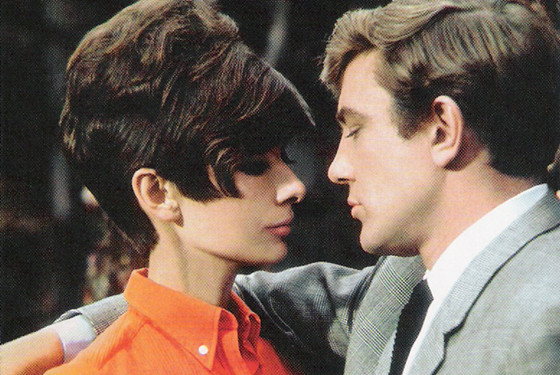
Directed by Stanley Donen, Two For the Road follows a married couple as they examine their 12 year relationship while on a road trip to Southern France. Donen depicts love as a dynamic emotion which can be ignited in an instant, but can fade over time.
In celebration of completing a building project for a client, successful architect Mark Wallace (Albert Finney) and his wife Joanna Wallace (Audrey Hepburn) embark on a road trip across France. Tensions are high as the two recall the ups and down of their relationship. Mark and Joanna acknowledge the issues that have plagued their relationship throughout its duration, and question their love for one another.
Two for the Road explores the highs and lows of romantic relationships. The fire of love is quickly ignited, but cannot burn for long without attention and effort.
The intimacy of traveling as a pair arouses feeling of affection between Joanna and Mark, and the two find themselves deeply in love. Their relationship begins to suffer as they lose focus on maintaining intimacy, becoming distracted with other aspects of life. Donen reveals that people do not fall in love and live happily ever after without commitment and effort.
9. Blue is the Warmest Color (Abdellatif Kechiche, 2013)
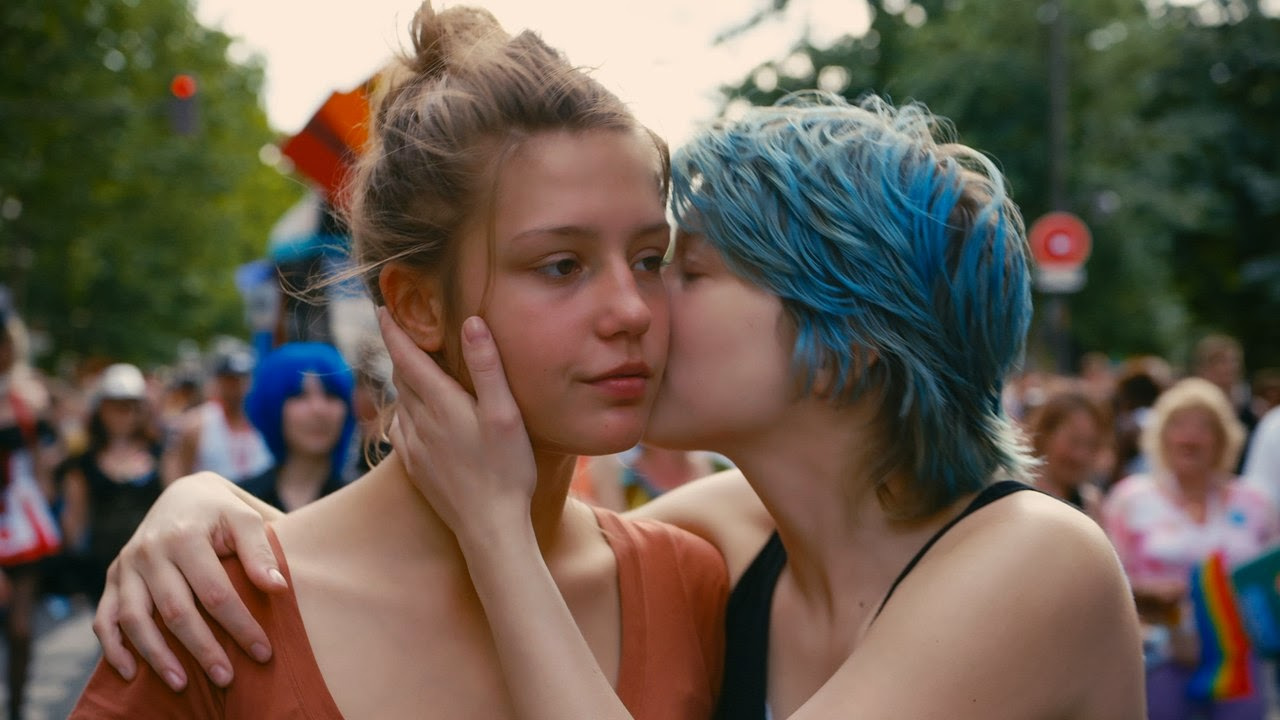
Written, directed, and produced by Abdellatif Kechiche, Blue is the Warmest Color won both the 2013 Palm d’Or and the FIPRESCI Prize. The film is a coming of age tale that examines the dynamic nature of love and sexuality. Kechiche depicts love as opportunistic and transitional, suggesting that romantic relationships can only be as stable as the personalities involved.
Adele (Adele Exarchopoulos) is 15 year old high school student, whom after a series of awkward sexual encounters, becomes confused with regards to her sexual identity.
Upon visiting a gay dance bar with an understanding friend, Adele meets Emma (Lea Seydoux), an art student. Their friendship soon blossoms into a passionate romantic relationship. As their relationship progresses the two begin to realize how little they have in common.
Kechiche portrays romantic love as active and unstable, only as secure as the people involved. Adele is very young, only beginning to understand her sexuality. She is not yet aware of what she wants or what she needs in a relationship. As the two grow older and their relationship progresses, incompatibilities become apparent.
Adele and Emma’s relationship begins to deteriorate, but their fondness for each other remains. Kechiche suggests that before we can find security in love, we must first have a firm understanding of ourselves and what we want. Without self-knowledge romantic relationships can only be fleeting.